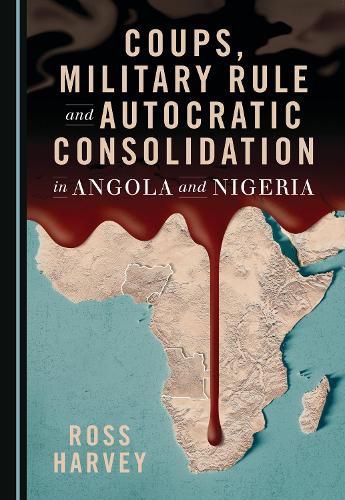Readings Newsletter
Become a Readings Member to make your shopping experience even easier.
Sign in or sign up for free!
You’re not far away from qualifying for FREE standard shipping within Australia
You’ve qualified for FREE standard shipping within Australia
The cart is loading…






This book provides a unique explanation of why Angola and Nigeria-Africa’s two largest oil-producing nations-have experienced different political and economic outcomes since attaining independence. It explains why Asian-led oil-for-infrastructure deals materialised in Angola but failed in Nigeria between 2004 and 2007. One hypothesis of the natural resource curse is that resource wealth leads to underdevelopment because it entrenches autocracy, but that fails to explain the different political economy outcomes in Angola and Nigeria, which were both predominantly autocratic post-independence. The book reveals, through the application of a game-theoretic model, that Angola’s Jose Eduardo dos Santos successfully used the country’s oil wealth to consolidate power early in his reign by eliminating potential threats to his dictatorial ambitions. He ruled for 38 years, and thus represented one of Africa’s longest autocracies, but was eventually upended by his own ruling party-an unusual outcome. By contrast, no Nigerian leader attained the same level of consolidation over oil or power. Perennial contestation for power-through multiple successful military coups-resulted in an uneven evolution towards a more open and competitive political settlement. The findings of this book will deepen the reader’s understanding of the resource curse and illuminate the importance of tailoring governance solutions to reflect the specificities of any resource-wealthy context.
$9.00 standard shipping within Australia
FREE standard shipping within Australia for orders over $100.00
Express & International shipping calculated at checkout
This book provides a unique explanation of why Angola and Nigeria-Africa’s two largest oil-producing nations-have experienced different political and economic outcomes since attaining independence. It explains why Asian-led oil-for-infrastructure deals materialised in Angola but failed in Nigeria between 2004 and 2007. One hypothesis of the natural resource curse is that resource wealth leads to underdevelopment because it entrenches autocracy, but that fails to explain the different political economy outcomes in Angola and Nigeria, which were both predominantly autocratic post-independence. The book reveals, through the application of a game-theoretic model, that Angola’s Jose Eduardo dos Santos successfully used the country’s oil wealth to consolidate power early in his reign by eliminating potential threats to his dictatorial ambitions. He ruled for 38 years, and thus represented one of Africa’s longest autocracies, but was eventually upended by his own ruling party-an unusual outcome. By contrast, no Nigerian leader attained the same level of consolidation over oil or power. Perennial contestation for power-through multiple successful military coups-resulted in an uneven evolution towards a more open and competitive political settlement. The findings of this book will deepen the reader’s understanding of the resource curse and illuminate the importance of tailoring governance solutions to reflect the specificities of any resource-wealthy context.